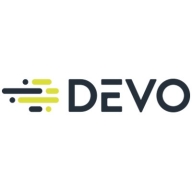

Devo and Google Chronicle Suite are prominent products in the IT security realm. Users are happier with Devo's pricing and support, but Google Chronicle Suite appears superior in features and is considered worth the price.
Features: Devo users appreciate robust analytics, real-time log management, and easy scalability. Google Chronicle Suite users value its extensive threat intelligence, seamless integration, and advanced threat detection functionalities.
Room for Improvement: Devo users highlight the need for enhanced reporting, alerting capabilities, and better user interface design. Users of Google Chronicle Suite suggest improvements in dashboard customization, data visualization, and reduced complexity in setup processes.
Ease of Deployment and Customer Service: Devo has a straightforward deployment model and receives high marks for customer service. Google Chronicle Suite users note a steeper learning curve, but praise comprehensive customer support.
Pricing and ROI: Devo is noted for its competitive setup costs and strong ROI in user reviews. Google Chronicle Suite, although more expensive, delivers substantial ROI through its powerful features and integrations.
We are a critical project for them at this moment, and they provide excellent service.
I have faced challenges with technical support from Sentinel, though Sentinel support is better than Google's, while Splunk support is also not that great.
They are slow, and the initial responses often require more information rather than providing helpful solutions.
There is limited support from Google or Microsoft Sentinel in terms of integrating those custom applications.
I rate the scalability of Google Chronicle Suite as ten out of ten.
Google Chronicle Suite is very scalable, being a cloud-based solution.
I rate the stability of Google Chronicle Suite as a nine, as I have not encountered any stability issues.
Integrations with other sandboxes could be improved to better interpret data using AI and machine learning models.
The UI is the primary challenge in need of improvement.
Customization is vital where users can customize the alerts, dashboard, or content as per their needs. This is more required in Google Chronicle Suite, allowing analysts or engineers to create according to the organization.
Google Chronicle Suite lacks near time detection.
It's neither expensive nor cheap, and I believe it is a justified price for the features offered.
Compared to a SIEM like Microsoft Sentinel, it is much more affordable.
I experience Chronicle as less expensive and less complicated than Azure.
When they see a spike in a line chart for a failed login, which could be a true or false attempt, they can click that spike, and a table widget on the same active board instantly populates with raw logs of data for those specific failed logins.
The threat intelligence, especially continuous IOC feeds, is a standout feature.
They also combine their source solution into one product, allowing for out-of-the-box playbook creation and incident response.
The automated response feature allows for immediate actions like isolating infected machines or blocking malicious IP addresses.
| Product | Market Share (%) |
|---|---|
| Google Chronicle Suite | 2.0% |
| Devo | 1.1% |
| Other | 96.9% |

| Company Size | Count |
|---|---|
| Small Business | 8 |
| Midsize Enterprise | 4 |
| Large Enterprise | 11 |
| Company Size | Count |
|---|---|
| Small Business | 9 |
| Midsize Enterprise | 1 |
| Large Enterprise | 6 |
Devo is the only cloud-native logging and security analytics platform that releases the full potential of all your data to empower bold, confident action when it matters most. Only the Devo platform delivers the powerful combination of real-time visibility, high-performance analytics, scalability, multitenancy, and low TCO crucial for monitoring and securing business operations as enterprises accelerate their shift to the cloud.
Organizations primarily leverage Google Chronicle Suite for centralized log management, threat intelligence, and endpoint security, addressing MDR requirements with continuous monitoring.
Google Chronicle Suite supports storage, security, and alert checking. Utilizing log information to generate alerts and integration with search engines, it monitors network and login issues. It is a choice for consultants on client projects, and partners handle its global resale and implementation.
What are the key features of Google Chronicle Suite?Industries employ Google Chronicle Suite for its robust security measures and log management. It is especially vital for IT, finance, healthcare, and any sector needing stringent security and compliance. Consultants find it essential for tailoring security protocols in client projects, while partners ensure seamless implementation across regions.
We monitor all Security Information and Event Management (SIEM) reviews to prevent fraudulent reviews and keep review quality high. We do not post reviews by company employees or direct competitors. We validate each review for authenticity via cross-reference with LinkedIn, and personal follow-up with the reviewer when necessary.